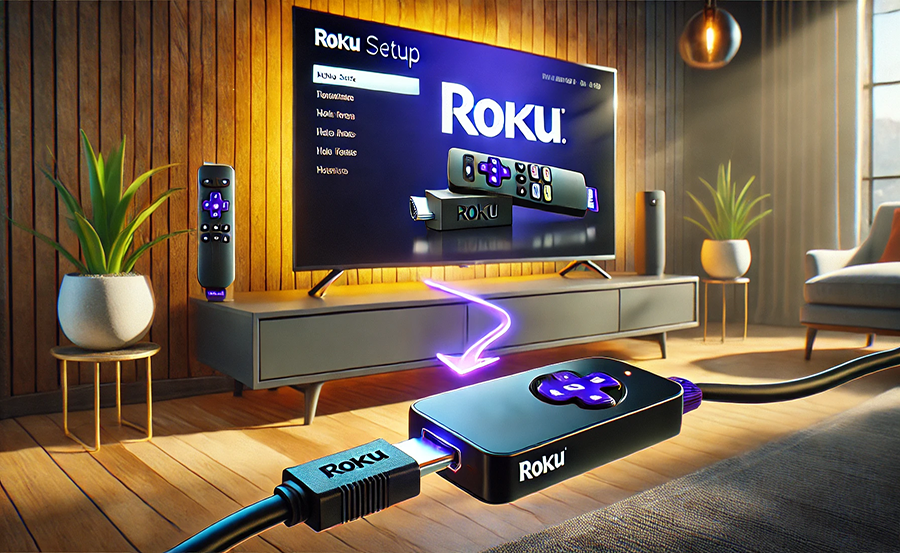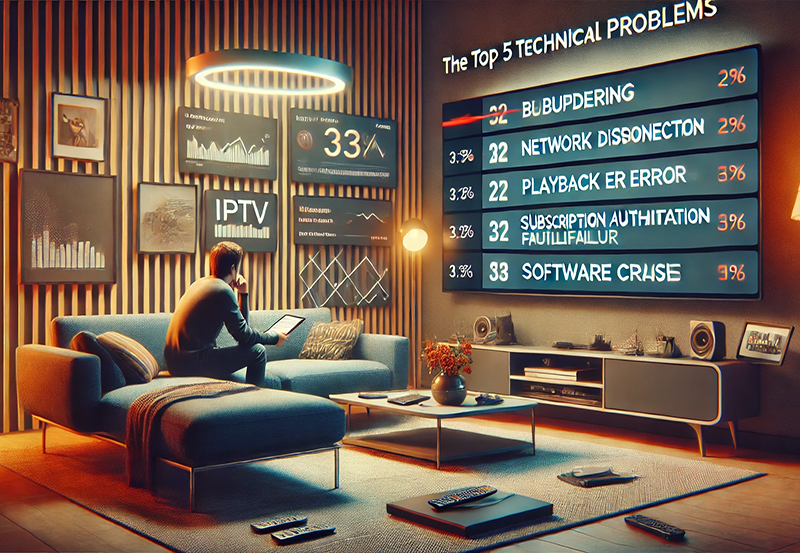In the rapidly evolving world of digital entertainment, IPTV has emerged as a game-changer, revolutionizing the way we consume television content. But with great advancements come certain challenges, especially when it comes to maintaining consistent connectivity. Have you ever been engrossed in a thrilling movie, only to be abruptly disconnected? Frustrating, right? This article sheds light on the key technical disconnection issues in IPTV and how you can set up a seamless streaming experience. wants Buy 1 Year IPTV Subscription
The Rise of IPTV in Modern Entertainment
The digital transformation has reshaped many sectors, with entertainment being at the forefront. Gone are the days when viewers were bound by the linear programming of traditional television. IPTV, or Internet Protocol Television, offers a more interactive, choice-driven viewing experience. Its surge in popularity is a testament to this shift. From live broadcasts to on-demand services, the spectrum of options is vast. But as with any digital solution, connectivity remains a hurdle that subscribers strive to overcome.
It’s worth noting that not all IPTV services are created equal. Choosing the top IPTV subscriptions is crucial if you’re looking for an optimal streaming experience. But even with the best services, sometimes technology doesn’t play in our favor. Let’s explore the reasons behind these interruptions and how you can ensure a smoother viewing experience.
Understanding Connectivity Challenges
When you’re on the verge of a plot twist, the last thing you want is a buffering screen. Connectivity issues with IPTV can stem from multiple sources, often leaving users scratching their heads. At a fundamental level, IPTV relies on a stable internet connection. Any fluctuation can severely disturb streaming quality. Additionally, network congestion, especially during peak hours, can be a silent disruptor.
Then there’s the issue of signal interference, which can complicate things further. These hiccups are especially prominent in wireless connections. It’s no wonder many find themselves stuck in a loop, wondering where the problem resides. Identifying the root cause is the first step towards a solution that’s lasting and effective.
ISP Related Disruptions
Internet Service Providers (ISPs) play a pivotal role in the quality of your IPTV service. Often, ISPs throttle bandwidth or prioritize other traffic, leading to degrading streaming quality. The importance of verifying your ISP’s compatibility with IPTV services cannot be stressed enough. Some users may find themselves in a constant tussle with their ISP, leading to ever-persistent buffering and connection loss.
Hardware and Software Limitations
Your hardware might also be to blame. Outdated routers, insufficient bandwidth, and incompatible software are common culprits that can affect streaming. Simple fixes such as firmware updates or router resets are often overlooked but can surprisingly yield significant improvements. Users often report an enhanced IPTV experience when upgrading their hardware, which is something worth considering if you find yourself plagued with interruptions.
Optimizing Your IPTV Connection
So, how do you elevate your IPTV experience? The solution begins with informed decisions and smart tactics. While some technical glitches are inevitable, there are various strategies to minimize interruptions so you can amplify your IPTV enjoyment effortlessly.
Enhancing Internet Connectivity
The cornerstone of a successful IPTV experience is a robust internet connection. Start by testing your internet speed. Many IPTV services provide guidelines on the required bandwidth for optimal performance. If you find your current speed lacking, consider negotiating a better package with your ISP.
You might also want to think about creating a dedicated network segment for your IPTV. This can be done through QoS (Quality of Service) settings in your router, which prioritize IPTV traffic and reduce buffering substantially.
Wired vs. Wireless: Making the Right Choice
While wireless connections offer convenience, they’re also prone to interference and delays. Opting for a wired connection, such as Ethernet, might be the way to go for consistent streaming quality. It may involve a few extra cables around your house, but the benefits definitely outweigh the drawbacks.
Router Placement and Setting Tweaks
The placement of your router can significantly impact your streaming. Routers tucked away in corners or behind walls can present serious connectivity issues. Ensure that it’s centrally located and elevated to minimize signal obstructions.
Moreover, tweaks like changing the router’s channel settings can also mitigate interference from neighboring networks, especially in densely populated areas.
Choosing the Best IPTV Service
Of course, the service you choose forms the nucleus of your experience. When evaluating options, consider their reliability, channel selection, and device compatibility. The best IPTV for streaming movies will offer a balanced mix of these elements, ensuring consistent connectivity and a diversified entertainment catalog.
Reputation and User Reviews
Before settling on an IPTV service, invest some time in research. User reviews and expert recommendations provide valuable insights into the service quality and any chronic connection issues. These reviews can be a goldmine, helping you avoid services notorious for poor connectivity.
Trial Periods and Money-Back Guarantees
Many providers offer trial periods or money-back guarantees. These are excellent opportunities to test the waters without full commitment. Make the most of such offers to explore various services and find a solution that fits your streaming needs impeccably.
Future Trends in IPTV Connectivity
The landscape of digital streaming is continually evolving, and IPTV is no different. From adaptive streaming technologies to AI-driven solutions, the future holds promising advancements aimed at mitigating connectivity issues.
Adaptive Streaming Technologies
One of the most promising developments is adaptive streaming. This technology adjusts the video quality in real-time based on your current internet speed, reducing buffering and ensuring a continuous viewing experience. It’s an evolving trend that smart IPTV users should keep an eye on.
5G Networks and Their Impact
With the rollout of 5G networks, the promise of faster, more reliable internet is becoming a reality. These networks could be a major disruptor in improving IPTV connectivity, offering unparalleled speeds and transforming the streaming landscape.
AI-Powered Optimization
AI technology is beginning to play a role in optimizing IPTV services. From predicting peak usage times to automatically adjusting settings for optimal performance, AI adds a layer of intelligence to connectivity solutions that could redefine the future of IPTV viewing.
Embrace Consistent IPTV with Confidence
The quest for a consistent IPTV experience is not without its challenges. However, with the right strategies and a touch of patience, you can transform your viewing habits and wave goodbye to disruptions. Always remember to regularly evaluate your service and equipment for an enhanced experience.
Simple Steps for Ongoing Improvement
- Regularly update your software and devices.
- Use feedback to generate solutions with your ISP.
- Explore new technologies that promise improved connectivity.
- Be proactive in upgrading equipment as needed.
By addressing these aspects while keeping an eye on the future developments, you’ll find yourself well-equipped to enjoy top-tier IPTV streaming, uninterrupted.
FAQ: Navigating IPTV Connectivity Challenges

What factors should I consider when selecting an IPTV service?
Consider factors like reliability, channel offerings, device compatibility, and user reviews. Rating platforms and expert recommendations provide insights into service performance and chronic issues.
How can I improve my current IPTV connectivity?
Improving connectivity involves checking internet speed, considering a wired connection, and optimizing router settings. Additionally, ensuring compatibility with your ISP can reduce interruptions significantly.
What’s the role of 5G networks in IPTV streaming?
5G networks promise faster and more reliable internet speeds, potentially transforming IPTV connectivity by minimizing latency and buffering, thus offering a superior streaming experience.
Are adaptive streaming technologies effective for IPTV?
Yes, adaptive streaming optimizes video quality in real-time based on your internet speed, reducing buffering and ensuring a smoother viewing experience, which makes it highly effective for IPTV.
Why do IPTV connections often fail during peak hours?
Network congestion during peak hours is a common issue, as many users share the same bandwidth. Adjusting QoS settings in your router may help prioritize IPTV traffic over other forms of data.
Should I consider switching ISPs for better IPTV service?
If consistent issues with your current ISP persist despite troubleshooting, exploring alternative ISPs known for better IPTV support could be beneficial.
The Ultimate IPTV Troubleshooting Guide: Fix Common Issues Fast





